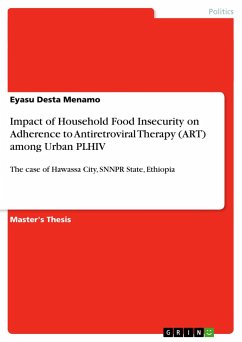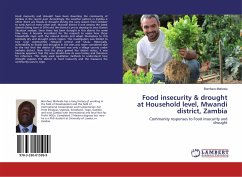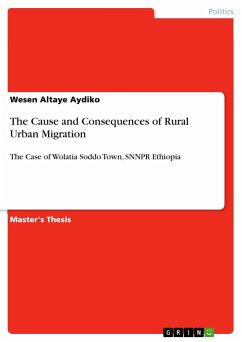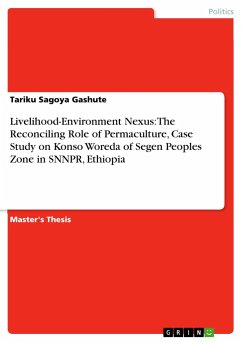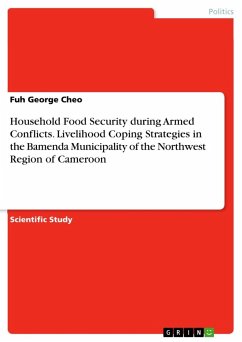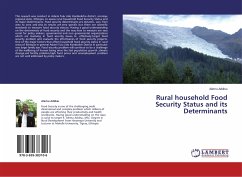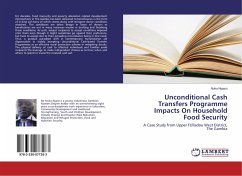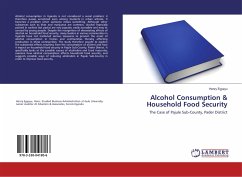Master's Thesis from the year 2012 in the subject Politics - International Politics - Topic: Development Politics, grade: Excellent , Hawassa University, course: Development Management , language: English, abstract: Background: ARV adherence is a strong predictor of biologic (virologic and immunologic) andclinical outcomes in HIV, including quality of life, HIV progression, hospitalizations, and death.Consistent adherence to antiretroviral therapy (ART) is the cornerstone of effective HIVtreatment. This study explores the interrelationship between food insecurity and access andadherence to ARV treatment. Such studies will help inform policy maker in the study area onways of improving or maintaining adherence to ARV and scale up the treatment level.Objective: The main objective of the study is to assess the prevalence of ARV adherence andassociated factors (with particular focus on household food insecurity) among urban PLHIV.Method: PLHIV association based cross-sectional study was conducted from January, 2012 toMay, 2012 in Hawassa city. Both quantitative and qualitative data were used to triangulate onewith another. Adult PLWHA on ARV therapy for at least 3 months were the study participants.A purposive sampling method used to select the study participants. Bivariate and multivariatelogistic regressions were computed to assess the factors associated with ARV therapy nonadherenceamong adult PLHIV in the study area.Result: Data were collected using structured questionnaire with open and closed type questionswhere a total of 325 participants were interviewed. Two focus group discussions with 6- 8members each were conducted. Key informant interviews for PLHIV association's coordinatorand healthcare providers at ART clinic were conducted. Data was presented using frequencytables and graphs. Data was analyzed using SPSS software version 16.0. Results show that thatthe prevalence of adherence to ART was 82.5 %( that is non -adherence level 17.5%), was suboptimal(less than 95%).Both dietary diversity and meal frequency score were less than mean (48.6% and 60.6%) respectively. Based on household food insecurity access module (63.7%)were food in secured. Household food insecurity was associated with ART adherence. Factorssignificantly associated with non- adherence to ARV therapy were religious status, protestantand catholic (COR 3.74, 95% CI 1.43-9.78) and (COR 2.11, 95%CI 1.11-4.02) respectively;marital status, divorced (AOR 3.88(1.48-10.20).[...]
Hinweis: Dieser Artikel kann nur an eine deutsche Lieferadresse ausgeliefert werden.
Hinweis: Dieser Artikel kann nur an eine deutsche Lieferadresse ausgeliefert werden.

